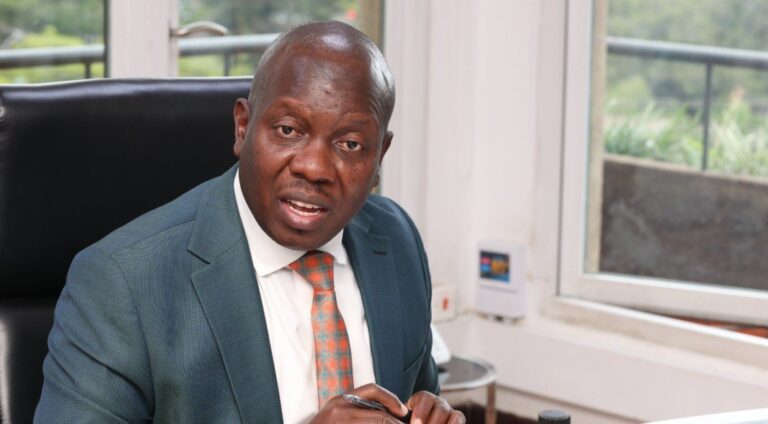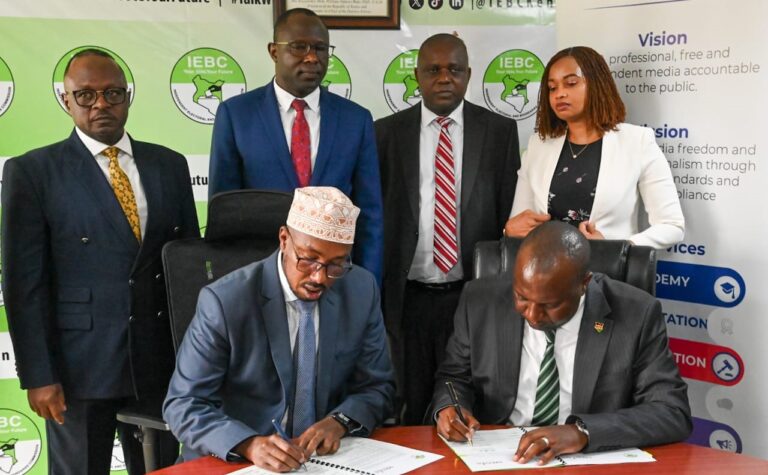
Former President Uhuru Kenyatta. Photo/Office of the Fourth President/X
By Newsflash Writer
A recent tax tribunal ruling has unearthed the hidden involvement of the Kenyatta family in the construction of the Nairobi Expressway, raising questions about conflict of interest during former President Uhuru Kenyatta’s administration.
The revelations come despite Mr Kenyatta’s public opposition to State officials and their relatives engaging in government business.
During the 2019 Jamhuri Day celebrations at Nairobi’s Nyayo Stadium, President Kenyatta made a bold statement against corruption, calling for legislation to prevent public servants and their families from profiting through government contracts. Dressed in his signature navy suit and red tie, he directed the then Attorney-General to draft the Conflict of Interest Bill, which aimed to enforce wealth declarations and bar insider dealings.
Ironically, as Mr. Kenyatta was pushing for this law, a company linked to his family was profiting from a major government project under his watch — the Nairobi Expressway.
Sand supply deal raises red fags
On March 26, 2021, Rose Wamaitha Ng’ote was listed as the sole shareholder of Edge Worth Properties Ltd, having taken over shares from Ropat Trust Company Ltd. Soon after this ownership change, Edge Worth surrendered land to Cale Infrastructure Construction Company Ltd — the Chinese contractor building the expressway — to allow sand extraction for construction.
Cale Infrastructure, operating under a public-private partnership model, was investing Sh88 billion in the 27.1-kilometre toll road. The company would recoup its money through toll collections. It also used the Edge Worth property to dump construction waste.
Read more: Muhoho Kenyatta rallies youth to shape Africa’s future
The link between Edge Worth and the Kenyatta family emerged during a tax dispute with the Kenya Revenue Authority (KRA). Documents filed in the case revealed that Ms. Ng’ote was a trustee acting on behalf of Enke Investments Ltd, a company owned by Mama Ngina Kenyatta, Muhoho Kenyatta, former First Lady Margaret Kenyatta, and Mr. Kenyatta’s children, Jomo and Ngina. Goodison Trust Corporation, another Kenyatta-linked entity, also held shares.
In 2022 alone, Edge Worth declared dividends worth Sh1 billion to Enke Investments, hinting at revenues of between Sh1.8 billion and Sh2.8 billion for the year. Yet, the Nation could not independenly verify the total value of sand extracted or payments made for it.
Tribunal unmasks ownership web
Initially, the KRA had cleared Edge Worth Properties after reviewing its tax records. However, in a follow-up audit, the taxman disallowed land-levelling expenses and flagged interest-free shareholder loans as fringe benefits, attracting Pay As You Earn (PAYE) tax. A tax bill of Sh249.2 million was issued in July 2024.
Edge Worth disputed the assessment, revealing that Ms. Ng’ote was not the beneficial owner but a nominee for Enke Investments. Supporting documents were filed at the Tax Appeals Tribunal in August 2024, showing that ownership had previously been held in trust by Ropat Trust, another firm with Kenyatta links.
The tribunal sided with Edge Worth, ruling that Enke Investments was the real owner and exempt from dividend tax under section 7(2) of the Income Tax Act. The tribunal also quashed tax demands on shareholder loans and instructed the KRA to reassess land-levelling costs solely for corporation tax purposes, not VAT or fringe benefit taxation.
Read more: Ngunjiri Wambugu: Uhuru is current Mt Kenya kingpin
Ropat Trust and its offshore counterpart, Ropat Nominees, have appeared in multiple Kenyatta business ventures. Ropat Nominees also owns Southbrook Holdings — a firm locked in a court battle over a land transaction in Ichaweri, Kiambu, involving Mama Ngina and a Gatundu family. The disputed land, sold by Virginia Njoroge, now houses GSU officers guarding the Kenyattas’ ancestral home.
Interestingly, Ms. Ng’ote was once a founding shareholder of Southbrook Holdings before being replaced by Ropat Nominees, reinforcing suspicions of a tightly knit network of proxy ownership structures.
Questions over ethics and public trust
Edge Worth argued that levelling the land post-excavation was essential to eliminate safety hazards, irrespective of its future use. KRA, however, contended the levelling was meant for hay farming and not an immediately deductible business expense. The tribunal ultimately ruled that VAT could not apply to non-income generating activities but allowed the KRA to reassess for corporation tax.
The case shines a spotlight on the contradiction between former President Kenyatta’s anti-corruption rhetoric and his family’s undisclosed involvement in a lucrative public project. Notably, Mr. Kenyatta’s spokesperson, Kanze Dena Mararo, declined to respond to repeated requests for comment.
This marks the second major tax challenge involving Kenyatta family-linked companies since President William Ruto assumed office in 2022. In April, the High Court nullified a Sh384.5 million tax waiver granted during the NIC-CBA merger, following a petition by Busia Senator Okiya Omtatah. NCBA, a product of that merger and partially owned by the Kenyattas, is contesting the ruling.
Read more: Jubilee sidelines Kioni for opposing Uhuru-Gachagua ‘handshake’
In total, the Kenyatta family maintains vast investments across real estate, finance, hospitality, agriculture, education, and the extractives sector. Alongside Edge Worth, Gituamba Stones Ltd is another family-owned player in the mining industry.
As Parliament awaits President Ruto’s assent to the final Conflict of Interest Bill, the Edge Worth saga raises critical concerns about the effectiveness of laws meant to guard against elite self-dealing — and whether Kenya’s political families can ever truly be separated from public resources.



